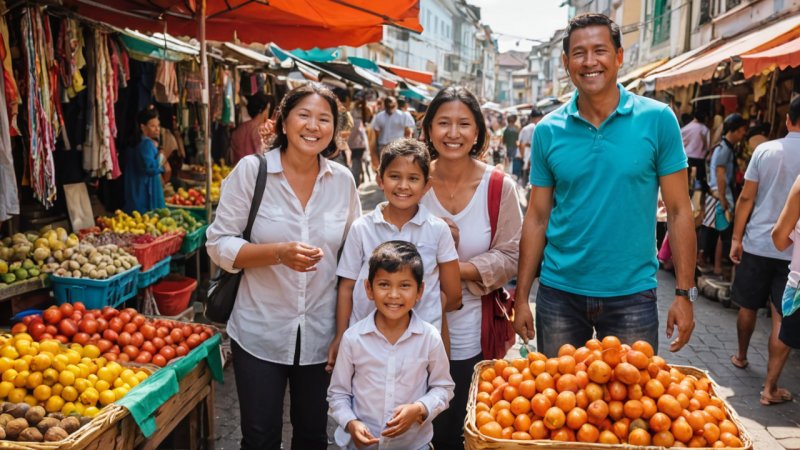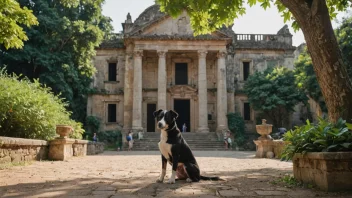Traveling as a family can be one of the most rewarding experiences, providing opportunities for bonding, education, and adventure. However, it can also be challenging to ensure that the trips are not only enjoyable but also meaningful for everyone involved. This article will delve into various strategies that families can employ to make their travels more enriching and memorable. From choosing the right destinations to engaging in local cultures, we will explore how to transform family vacations into lifelong memories.
Understanding the Importance of Meaningful Travel
Before diving into practical tips, it’s essential to understand what makes travel meaningful. Meaningful travel goes beyond just visiting popular tourist spots; it involves creating connections, understanding different cultures, and making memories that resonate with family members long after the trip has ended. This type of travel fosters personal growth, empathy, and a broader worldview, especially for children who are still forming their understanding of the world.
Choosing the Right Destinations
The first step in ensuring a meaningful family travel experience is selecting the right destination. Here are some factors to consider:
- Interests of Family Members: Each family member should have a say in where to go. Consider destinations that cater to the interests of everyone, whether it’s nature, history, or adventure.
- Educational Opportunities: Look for destinations rich in history and culture. Places like Washington D.C., Rome, or Kyoto offer plenty of educational experiences that can engage children.
- Accessibility: Ensure that the destination is suitable for all age groups and mobility levels within the family. This consideration can prevent unnecessary stress and enhance enjoyment.
- Local Culture: Choose destinations that allow your family to immerse themselves in the local culture rather than just observing from a distance.
Incorporating Educational Experiences
Travel is an excellent opportunity for learning outside the classroom. Here are some ways to incorporate educational experiences into your family trips:
1. Plan Visits to Museums and Historical Sites
Visiting museums and historical sites can provide a wealth of knowledge. Engage children by discussing what you see, asking questions, and encouraging them to share their thoughts. Consider utilizing guided tours or educational workshops that cater to families.
2. Engage in Local Workshops
Participating in local workshops can provide hands-on learning experiences. Whether it’s cooking classes, art workshops, or traditional craft sessions, these activities can enrich your understanding of the culture and create lasting memories.
3. Explore Nature and Wildlife
Nature can be a fantastic teacher. Consider visiting national parks, wildlife reserves, or botanical gardens. Encourage children to observe and ask questions about the flora and fauna they encounter. You can even take guided nature walks with professionals to learn more about the ecosystem.
Encouraging Family Bonding Through Shared Experiences
Travel can be a great way to strengthen family bonds. Here are some tips on how to encourage bonding through shared experiences:
1. Engage in Team Activities
Choose activities that require teamwork, such as hiking, kayaking, or cooking a meal together. Team activities foster cooperation and create shared memories that everyone can cherish.
2. Create a Family Journal
Encourage each family member to document their travel experiences in a journal. This can include drawings, thoughts, and memories. At the end of the trip, review the journal together to reflect on the experiences.
3. Designate Family Time
While exploring, ensure that there is dedicated family time away from screens and distractions. Whether it’s having meals together, playing games, or sharing stories around a campfire, these moments are vital for bonding.
Embracing the Local Culture
One of the most fulfilling aspects of travel is the opportunity to immerse yourself in local culture. Here are some ways to do this:
1. Try Local Cuisine
Food is an integral part of any culture. Explore local markets, street food, and dining options that reflect the region’s culinary traditions. Consider taking a family cooking class to learn how to prepare a traditional dish.
2. Attend Local Events and Festivals
Check the local calendar for events or festivals during your visit. Participating in local celebrations can offer insight into the culture and create unique experiences for the family.
3. Meet Local Families
Connecting with local families can provide a unique perspective on the culture. Consider arranging home stays or community visits where your family can interact with locals, share meals, and learn about their lifestyle.
Documenting Your Journey
Creating a record of your travels can help reinforce the meaning of the experience. Here are some ideas on how to document your journey:
1. Photography
Encourage each family member to take photos during the trip. Later, you can create a family album or slideshow that captures the essence of your travels.
2. Create a Scrapbook
Collect mementos from your trip, such as tickets, postcards, and brochures, and create a scrapbook together. This hands-on activity can be a wonderful way to relive memories after the trip.
3. Share Stories
At home, have a family night where everyone shares their favorite moments from the trip. This not only reinforces the memories but also encourages storytelling skills.
Planning for Sustainability
Meaningful travel should also consider the impact on the environment and local communities. Here are some tips for sustainable travel:
1. Choose Eco-Friendly Accommodations
Look for hotels and lodges that prioritize sustainability, such as those using renewable energy or supporting local communities. This not only reduces your carbon footprint but also supports responsible tourism.
2. Respect Local Customs
Educate your family about local customs and traditions before your trip. Understanding what is appropriate can enhance your experience and show respect for the culture.
3. Minimize Waste
Encourage your family to reduce waste during the trip. Carry reusable water bottles, avoid single-use plastics, and dispose of waste properly to minimize your impact on the environment.
Conclusion
Making family travel more meaningful is about intentionality. By choosing the right destinations, incorporating educational experiences, fostering family bonding, embracing local culture, documenting your journey, and planning for sustainability, families can create unforgettable memories that last a lifetime. Travel is not just about the places you visit; it’s about the connections you make and the lessons you learn along the way. With these strategies, your family can transform every journey into a meaningful adventure.






